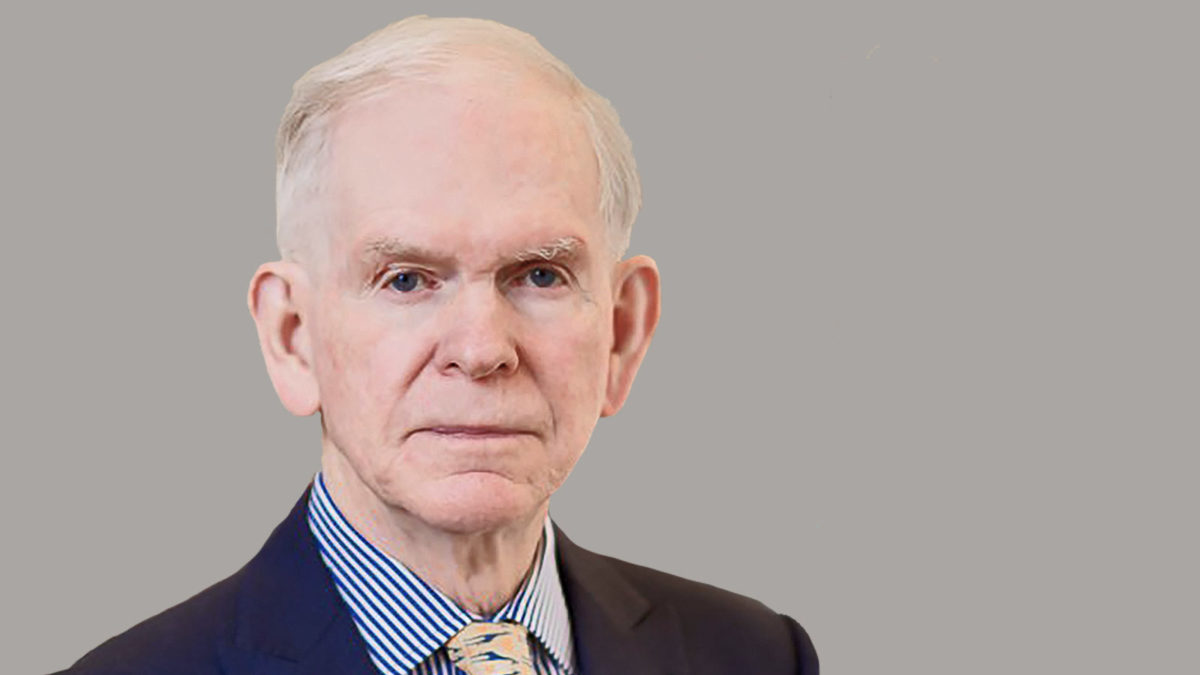‘We’re so fragile’: more gloom from permabears
Jeremy Grantham, chief investment strategist of GMO and part-time prophet of doom, has been unusually quiet of late. One would expect the severe market dislocation we’ve been experiencing since the start of the year would lure out the great cynic, but it was only last week that Grantham emerged to comment on what appears to be the collapse of the asset “super bubble”
This appears to be “the death of the vampire”. Now, Grantham says, the meme stocks are in “ragged disarray”, while Cathie Wood’s ARK Invest – generally considered symptomatic of some sort of market craziness – has given back all its gains since 2018. The Nasdaq is down near 30 per cent from its high. Grantham believes it’s all “playing out pretty close to 2000.”
But Grantham’s relentless cynicism about the direction of markets – which has earned him the moniker of “permabear” – shows no signs of abating. Indeed, it’s his belief that things will get substantially worse. When you’re a perma-bear, there’s no sense in not doubling down.
“All you have to do is cough now, and it ricochets around the world in price spikes and shortages and bottlenecks,” Grantham said. “And that is the world we’d better get used to living in. We’re going to have a world of increasing number of bottlenecks and shortages. And the same applies to food.
“The UN Food Index is higher today than any time in its history over the last 50 years since it started. So, you have price pressure on raw materials, metals, food; you have price pressure long-term on labour. This surely feels like a new era in which inflation will be part of the background music just like it was in the 20th century and perhaps more so.”
The comments come from a recorded interview Grantham conducted alongside Ray Dalio of Bridgewater Associates, another bearish investor who has found a lucrative sideline in headline-grabbing predictions. Dalio reiterated his oft-quoted position on cash (“still trash“) before warning that social and political conflicts “are going to be a big investment thing coming forward.”
“The way I look at it is I want to look at places that have good income statements and balance sheets,” Dalio said. “So, when I say places, I mean countries as well as individuals that make up those countries, the individual people and the individual companies.
“So, do they have a good income statement, financial stability, if they have a good balance sheet so that they can weather those things, and also, it’s a sign of their productivity. Are they productive? And then, number two, are they civil with each other? I really do believe that internal conflict and bad finances are going to be defining characteristics of where to invest or even where to be.”
Meanwhile, Grantham – who has in recent years taken an interest in the impacts of climate change – believes “we’re going to have to rely enormously on research and our inventiveness to save our bacon” in a world where the human population is rapidly outstripping the resources available to it.
However, Grantham believes that rapidly falling birth-rates and faster research and development will indeed “save our bacon.”
“We have wasted, arguably, 50 years getting the point that climate change is ultimately dangerous. And by the time we have all this cheap green energy, an enormous amount of damage will have been done,” Grantham said.
“This is the kind of burden that we will have to deal with. And if we have fusion or one of the others, we will be able to set about the slow, steady business of subtracting carbon dioxide and returning the planet to a decent state. So, if we have that and we combine with it a declining population, we really do have a chance of survival, as I like to say.”










